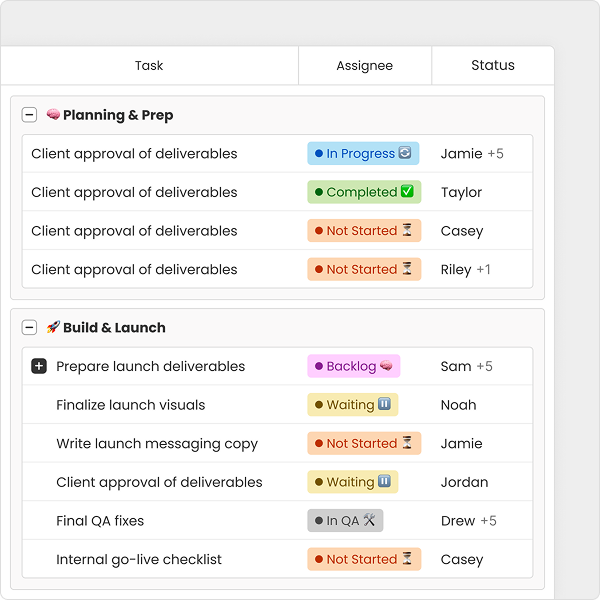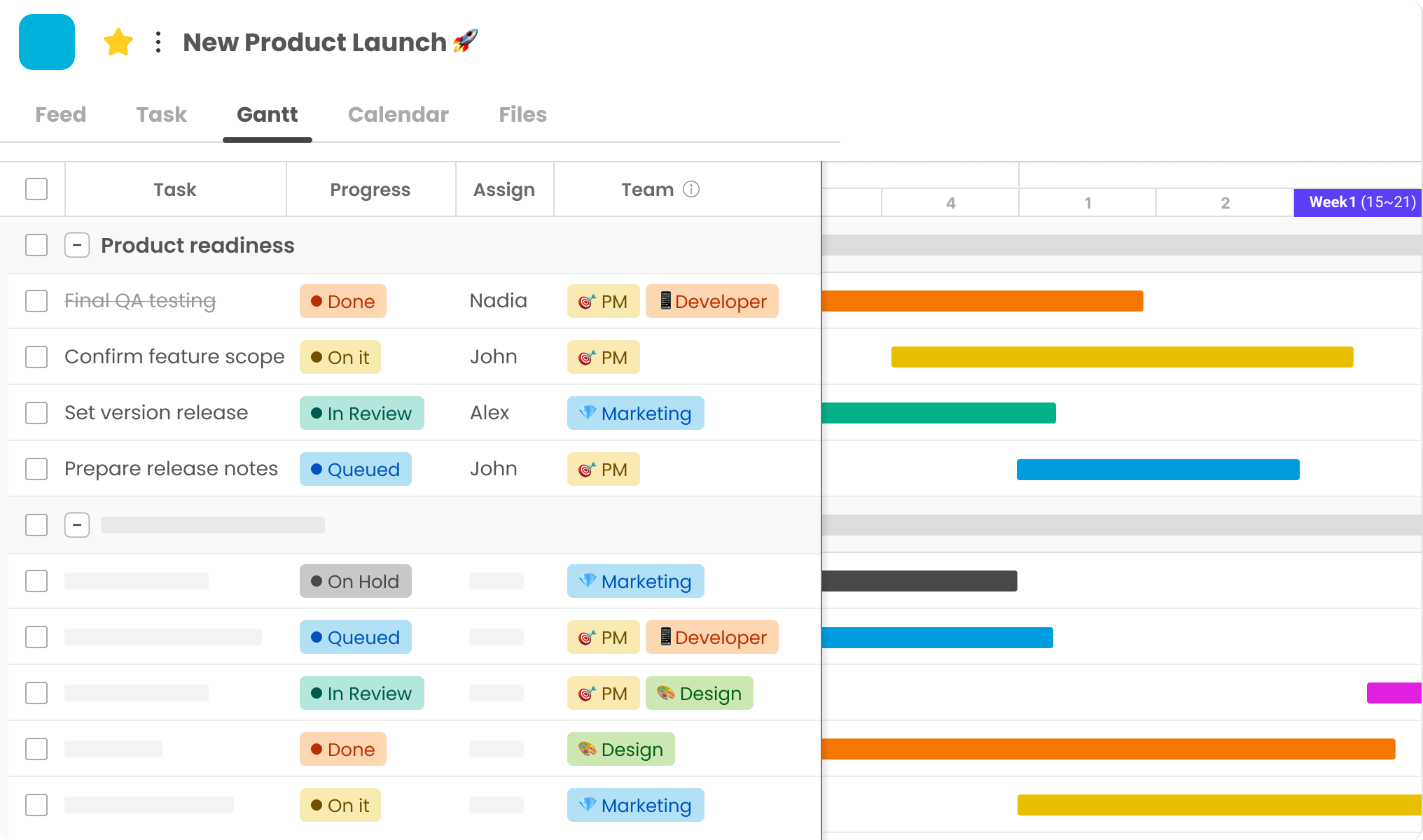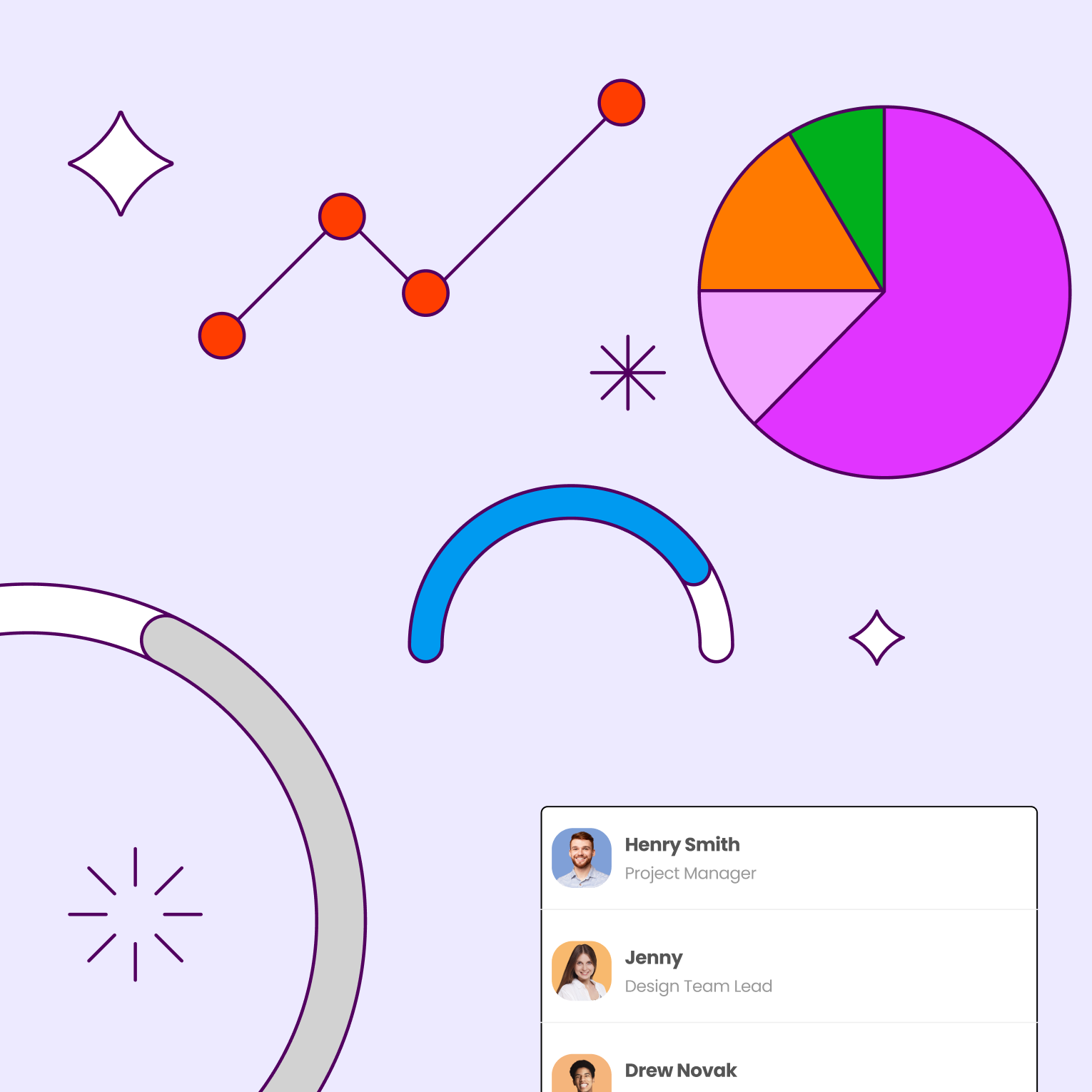What Does Project Management Involve?
Project management requires a clear understanding of the dynamics between people and the various activities involved. Successfully managing projects goes beyond simply checking off tasks or adhering to a timeline; it involves coordinating multiple elements to ensure they work together seamlessly. A project manager must be skilled in designing plans, communicating effectively, analyzing data, resolving conflicts, and making necessary adjustments. The human aspect of project management is just as crucial as the technical side, encompassing the development of emotional intelligence and team leadership skills. To effectively manage projects, one must leverage interpersonal skills, utilize modern digital tools, and receive organizational support for decision-making and oversight. While the complexity and nature of different industries may vary, the core responsibilities of project managers—such as setting goals, delegating tasks, ensuring quality, and engaging stakeholders—remain consistent.
The Importance of Core Skills
Every successful project is driven by a project manager equipped with essential skills. These include time management, problem-solving, team leadership, and the ability to clearly define project scope and deliverables. Without these skills, even the most advanced tools can fall short.
Project management requires forward-thinking individuals who can coordinate multiple activities and participants simultaneously. Core skills enable managers to anticipate challenges, foster accountability, and ensure alignment between the team and the organization’s objectives.
Whether you are an experienced leader or just starting, developing these fundamental skills is vital for adding value and advancing your career.
The Role of Tools and Systems
Even the most capable project manager cannot achieve success without the right systems in place. Digital solutions provide visibility into every project phase, enhance real-time collaboration, and boost productivity.
The market offers a variety of options, from scheduling tools and workflow automation to communication platforms. Selecting the right tools and mastering their use can streamline daily operations and provide valuable insights.
The best project management tools are not always the most complex; they are those that align with the team’s working style, integrate smoothly, and support both planning and execution.
Essential Soft Skills for Project Managers
Human-centered skills enable project managers to navigate uncertainty, foster teamwork, and build relationships. While hard skills help manage budgets and deadlines, soft skills shape team culture, stakeholder engagement, and overall project momentum. Often, these abilities distinguish a project that exceeds expectations from one that merely meets them.
Active Listening and Communication
Effective communication is a cornerstone of successful project management. It involves not only sharing information but also ensuring it is clear and actionable. Project managers must communicate effectively with various audiences—team members, clients, executives, and vendors—each with different expectations and levels of technical expertise.
Project management requires as much listening as it does speaking. Active listening involves empathetic responses, clarifying questions, and careful attention to others’ input. This approach allows leaders to identify potential issues early, resolve misunderstandings, and show respect for team feedback. Active listening fosters alignment and trust, especially in remote or cross-functional teams where assumptions can lead to problems.
Strong communication skills also facilitate constructive feedback, manage difficult conversations, and enable transparent updates.
Teamwork and Leadership
Project managers lead teams toward a common goal, often under pressure and with limited resources. Effective leadership is about establishing a vision, empowering team members, and holding individuals accountable in an inspiring way, rather than micromanaging.
Good leaders can motivate diverse personalities, recognize each team member’s strengths, and adapt their leadership style as needed. They create an inclusive environment where team members feel comfortable sharing ideas, voicing concerns, and fully engaging.
Leadership and collaboration go hand in hand. When teams work together toward shared objectives, projects thrive. By defining roles, managing interdependencies, and encouraging knowledge sharing, project managers facilitate teamwork. Cohesive teams solve problems more quickly, innovate more effectively, and remain engaged throughout the project lifecycle.
Conflict Resolution and Adaptability
Projects are inherently dynamic, often facing unexpected challenges, shifting stakeholder demands, and resource constraints. A successful project manager must be adaptable and quick to adjust plans without losing sight of the overall vision.
Adaptability also involves emotional intelligence: staying calm under pressure, being open to feedback, and adjusting leadership styles based on the situation. Flexible leaders empower their teams to navigate change confidently.
Conflicts are inevitable in any project. Disagreements may arise from differing priorities, responsibilities, timelines, or performance levels. Project management requires the ability to resolve conflicts diplomatically and, whenever possible, find solutions that satisfy all stakeholders. This involves listening to various perspectives, remaining neutral, and guiding discussions toward common goals.
Managers who effectively resolve conflicts foster stronger teams and reduce friction that could jeopardize deadlines or morale.
Critical Thinking and Decision-Making
Every project will encounter challenges. Whether a key deliverable is delayed or a new stakeholder raises concerns mid-project, critical thinking allows project managers to step back, analyze the situation from different angles, and make informed decisions swiftly.
Critical thinking involves gathering relevant information, understanding cause and effect, and recognizing biases. It enables project managers to choose the best path forward by weighing risks, costs, and stakeholder needs.
Critical thinking enhances decision-making. Great project managers make choices thoughtfully and stand by them; they neither avoid nor shy away from difficult decisions. They know how to justify their actions clearly, when to seek advice, and when to act independently. This confidence and clarity can prevent a project from derailing or stagnating under pressure.
These soft skills work together to form the foundation for project success. Developing them not only enhances your reputation as a capable, trustworthy leader but also improves team performance.
Essential Hard Skills for Project Management
Hard skills provide the structure and measurability necessary for project management, while soft skills foster a productive team environment. Hard skills ensure that work is organized, efficient, and trackable, forming the technical foundation of project management. Formal education, professional training, hands-on experience, and certifications help individuals develop these skills. Mastering them instills confidence and consistency in managing budgets, schedules, scope, and quality.
Scheduling and Planning

Every successful project begins with a well-structured plan. Planning involves setting project goals, breaking them down into smaller tasks, assigning responsibilities, and creating a roadmap to guide the team from start to finish. Without a clear plan, teams may miss critical deadlines, face overlapping responsibilities, or lack direction.
Tools like Work Breakdown Structures (WBS), Gantt charts, and the Critical Path Method (CPM) help deconstruct complex projects into manageable components. These tools also provide visual timelines, task dependencies, and resource allocation to ensure nothing falls through the cracks.
Scheduling involves estimating task durations, managing resource availability, and incorporating potential delays with buffers or float time, in addition to setting end dates. Project management requires a delicate balance of structure and flexibility; a well-crafted schedule must allow for adjustments while maintaining overall momentum.
Cost Management and Budgeting
Financial management is a critical component of project management. Every project has a budget, and adhering to it is essential for client satisfaction and overall success. Budgeting starts with estimating costs for various project elements—such as labor, materials, technology, and overhead—and continues with monitoring and adjusting these estimates as the project progresses.
Cost management extends beyond just creating a budget. Project managers must keep expenses in check, approve purchases, and analyze spending patterns to identify potential overruns before they escalate. Tools like Earned Value Management (EVM) and Cost-Benefit Analysis (CBA) offer valuable insights into cost performance and return on investment, enabling project managers to make informed decisions.
Every project carries inherent risks, some predictable and others not. A skilled project manager anticipates these risks and prepares for them. Risk management involves identifying potential issues, assessing their likelihood and impact, and developing contingency plans to minimize disruption.
Risks can be financial (cost overruns), operational (supplier delays), legal (compliance issues), or reputational (negative customer feedback). The sooner a team identifies these risks, the more options they have to mitigate their effects.
Project managers use tools like risk registers, probability-impact matrices, and risk heat maps to monitor potential issues. These tools help prioritize risks based on severity and likelihood, allowing managers to focus their efforts where they will have the greatest impact.
Scope and Timeline Management
Scope control involves defining what is included and excluded in a project. One of the most common and dangerous mistakes in project management is scope creep, where new features or requests are added without proper evaluation. While often well-intentioned, these additions can lead to budget overruns, delays, and frustrated team members.
Effective scope management begins with clearly documented requirements and deliverables. Stakeholders should be aligned from the outset, and any requested changes must go through a structured change control process that assesses feasibility and impact.
To avoid scope ambiguity, project management requires regular documentation and updates. Weekly reviews and milestone approvals at each stage ensure that everyone remains aligned.
Technical and Digital Skills for Modern Project Managers
In today’s fast-paced, technology-driven environment, project management requires more than traditional planning and reporting. Modern project managers must be proficient in various digital tools and methods to remain effective, competitive, and adaptable.
These technical skills enable project managers to streamline processes, facilitate remote or hybrid team collaboration, and gain insights through real-time analytics. As projects grow more complex, digital fluency becomes increasingly important.
Project Management Software Proficiency
Fluency in project management software is essential. Tools like Morningmate, Asana, Wrike, Trello, Jira, ClickUp, and Microsoft Project allow project managers to track progress, assign tasks, manage schedules, and communicate with stakeholders—all in one place.
Project managers must not only understand these systems but also be able to automate repetitive tasks, configure dashboards, and customize workflows. Their ability to quickly adapt to new platforms or features keeps them effective, regardless of the tools their organization uses.
The choice of software often depends on team size, project type, and methodology. For example, Agile teams may prefer Trello’s visual boards, while marketing departments might opt for Jira’s sprint-based design.
Gantt Charts and Kanban Boards

Gantt charts and Kanban boards are among the most commonly used visual tools in project management. They promote transparency, help coordinate activities, and prioritize workloads.
Gantt charts provide a comprehensive, time-based overview of the project, making them particularly useful in waterfall project scenarios. They help manage task dependencies and overlapping responsibilities.
Kanban boards, often used in Agile methodologies, visually represent work progress through stages like “To Do,” “In Progress,” and “Done.” This framework allows for real-time identification of bottlenecks and enhances team focus.
Understanding when and how to use each visualization technique is crucial. Effective project management tools and skills should align with team preferences and project requirements.
Agile and Scrum Methodologies
Agile frameworks are increasingly integral to modern project management. Agile emphasizes iterative development, customer feedback, and cross-functional team collaboration. Project managers in fast-evolving fields like technology, marketing, and design must understand Agile principles.
The popular Agile methodology, Scrum, divides projects into “sprints.” Project managers, often referred to as Scrum Masters, are responsible for facilitating daily stand-ups, sprint reviews, retrospectives, and planning meetings.
Project managers must not only grasp these rituals but also foster an Agile mindset that embraces change, iterative progress, and continuous improvement. Certifications in Agile or Scrum, such as CSM or PMI-ACP, can enhance a project manager’s credibility and career prospects.
Data Analysis and Reporting
Data is central to informed decision-making. Project managers should be able to track budget variances, task completion rates, resource utilization, and overall progress against milestones—among other key performance indicators (KPIs).
Many tools, such as ClickUp, Smartsheet, and Jira, offer built-in reporting and analytics dashboards. However, project managers must be able to analyze this data, draw meaningful conclusions, and communicate them effectively to stakeholders.
Project management requires the ability to create clear, visual reports—often for audiences who may not be familiar with technical details. Effective reporting keeps everyone aligned, whether through stakeholder summaries or burndown charts.
How to Build Your Project Management Skills
Strong project managers are shaped by experience, education, and continuous learning; they are not born. Developing your project management skills requires consistent self-improvement and intentional effort. Whether you are an experienced professional or new to the field, there are always new tools, methods, and frameworks to explore.
Mentorship and On-the-Job Training
Hands-on experience is the best teacher. Actively managing projects, even small ones, exposes aspiring project managers to real challenges, such as team conflicts, resource limitations, and shifting deadlines.
Pairing this experience with a mentor accelerates learning. Seasoned project managers can offer guidance, recommend tools, and provide feedback during challenging situations. By observing their decision-making processes, less experienced project managers can learn both strategic and tactical approaches.
Project management requires intuition as well as knowledge; exposure and experience help develop that intuition over time.
Formal Education and Certification
While experience is important, formal education can greatly improve your resume. Certifications like:
- Project Management Professional (PMP)
- PRINCE2 (Projects in Controlled Environments)
- Certified Associate in Project Management (CAPM)
show employers that you understand key concepts.
Online platforms such as Simplilearn, Coursera, Udemy, and edX provide flexible ways to earn these certifications. These programs cover subjects like planning, risk management, budgeting, and leadership, presenting project management principles in clear and easy-to-understand modules.
Joining PM Communities and Events
Engaging with communities provides access to resources, job opportunities, new tools, and peer support. Being part of a community helps you stay informed about trends and best practices, whether through a local PMI chapter or LinkedIn groups.
Attend webinars, conferences, or local meetups. Sharing challenges and learning how others have addressed similar issues is invaluable. Networking can also lead to mentorship opportunities, partnerships, or new job prospects.
Surrounding yourself with like-minded individuals fosters ongoing growth and a clearer sense of direction in your project management journey.
Project Management Tools: A Focus on Functionality
Instead of listing every tool available, this section clarifies how different tools support various aspects of the project management process.
Which Tools Enhance Key Skills?
Tools enhance fundamental project management skills in the following ways:
- Communication: Slack, Microsoft Teams, and Zoom help organize discussions and reduce email overload.
- Scheduling: Tools like MorningMate assist with managing dependencies and timelines.
- Resource Allocation: Float and Resource Guru ensure optimal use of team capacity.
- Information Management: Google Workspace, Notion, and Confluence streamline information access.
- Monitoring: Dashboards from Jira, ClickUp, and Wrike track progress, time, and cost metrics.
Using the right tools minimizes project risk and boosts productivity.
Matching Tools to Project Phases (Brief Overview)
Different project phases require different tools:
- Initiation: MindMeister and Lucidchart assist with stakeholder mapping and brainstorming.
- Planning: MS Project and GanttPRO provide timelines and task dependencies.
- Execution: Trello, Asana, and Jira simplify task tracking.
- Monitoring and Controlling: Smartsheet and ClickUp offer real-time performance reviews.
- Closure: Notion or Google Drive ensure lessons learned and final documents are archived.
Selecting the appropriate tool for each phase enhances focus, alignment, and documentation.
Choosing the Right Tool for Your Role
Not every project manager requires complex, enterprise-level software. The right tool should align with your team’s workflow, your company’s structure, and the size of your project. MorningMate offers a user-friendly and adaptable solution suitable for various sectors and team sizes.
Whether you’re a startup project manager juggling multiple responsibilities, a marketing lead coordinating campaign schedules, or part of a larger corporate team seeking straightforward communication, MorningMate has you covered. Unlike disjointed setups that rely on multiple tools like Trello, Slack, and Notion, MorningMate integrates project tracking, task management, and team collaboration into one easy-to-use platform.
Project management requires both clarity and flexibility, and MorningMate delivers on both fronts. It’s about choosing a tool that streamlines your workflow, grows with your team, and boosts productivity from day one, rather than chasing the latest software trend.
Final Thoughts: Evolving as a Project Manager
Becoming a skilled project manager is an ongoing journey. It involves mindset, communication, leadership, and a willingness to adapt, rather than just having the right credentials or tools.
Your approach to project leadership must evolve alongside industry developments and changing workplace dynamics. The most effective project managers embrace change, seek feedback, and commit to lifelong learning.
Whether you’re managing large teams or just starting your career, remember that project management requires both a strategic approach and a personal touch. Successfully integrating project management techniques and tools empowers your team, satisfies your stakeholders, and consistently leads to positive results.




